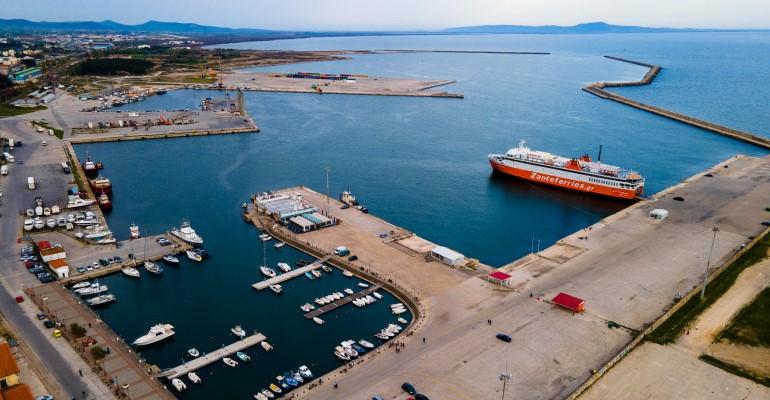The privatisation of Greece’s northern port of Alexandroupolis has been called off after it was decided it should remain state-owned as an asset too precious to relinquish, said Greek Prime Minister Kyriakos Mitsotakis.
Mitsotakis speaking to broadcaster ANT1 confirmed reports that “geopolitical developments” prompted a re-think of the deal to sell a majority stake in the north Aegean facility to private investors. Situated near the borders with Bulgaria and Turkey, Alexandroupolis has the potential of becoming an energy hub for central Europe.
The port also functions as a supply base for Nato forces throughout Eastern Europe and is part of a five-year term framework (Greek-American Mutual Defense Cooperation Agreement) for the presence of the US Armed Forces in Greece signed last May

There are plans to create a floating gas storage and regasification unit (FSRU) at the facility, pivotal for Europe as it faces an energy crisis from declining Russian gas supplies in the wake of the invasion of Ukraine and sanctions slapped on Russia.
“The government has decided that under present circumstances Alexandroupolis has such a large strategic, geopolitical and energy importance to our country that it should remain under the jurisdiction of the Greek public,” said Mitsotakis.

On September 13, Greece received two binding bids for a 67% stake in the port. Four investors had been shortlisted last year for the sale. The bidders were Quintana Infrastructure and Development through Liberty Port Holdings Single Member, and International Port Investments Alexandroupolis, a jv of Black Summit Financial Group, Euroports, EFA Group and GEK Terna.
The government has also decided to proceed with a similar model for the Kavala Port Authority which is 100% owned by he Greek privatisation fund, Taiped.
Like Alexandroupoli, Kavala constitutes port infrastructure of critical geopolitical importance, adjacent to important energy facilities and resources, as well as transport routes. Infrastructures include the only active hydrocarbon field in the country (Prinos), the underwater cavity off Kavala that can be used as a strategic gas reserve depot (the tender for which is ongoing), also the prospect of developing sites of undersea carbon dioxide storage and the Trans-Adriatic Natural Gas Pipeline (TAP), while its proximity to Alexandroupoli is such that its port is often treated as a complement to its counterpart in the northeastern Greece.



